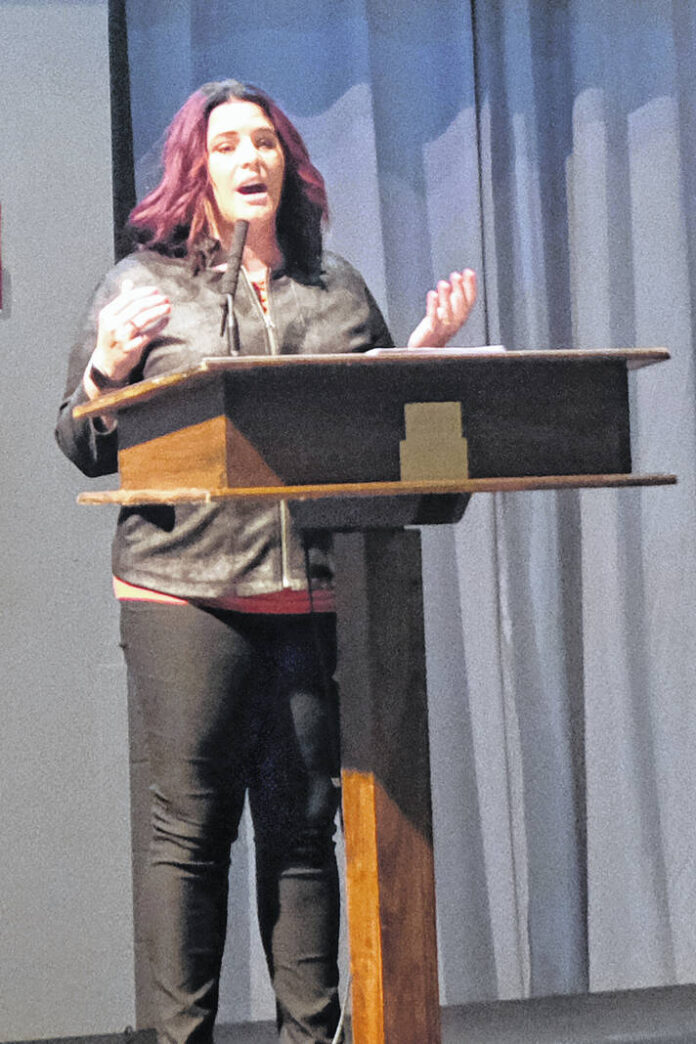LIMA — Amy Spriggs, director of marketing strategy for Tomorrow’s Technology Today, began her presentation at the Great American Breakfast at the Chamber by asking, “Of the 376.4 million emails sent per day, what percentage of cybercrimes start with emails? How many out of 100 people will click on a malicious link?”
The answer to the first question is that 91% of cybercrimes start with email. The answer to the second question 80 times out of 100 will click on a malicious link.
October is Cyber Security Awareness Month. The Internet is a rapidly changing world. The types of cyber threats at the beginning of the month can evolve into something else, so it’s important to be aware of what’s happening online.
“You have to provide the right protection in your workplace, but you also have to make sure that people in your organization are regularly trained because it changes every day. Every day there are new things coming to us when it comes to cyber threats,” Spriggs said.
Social engineering is the manipulation of people to gain access to sensitive information. Catfishing is social engineering. This is one of the easiest ways for criminals to get your information.
Catfishing is the act of manipulating a person online to get them to send money or give over personal information to a catfish. Catfish often pose as attractive people to lure victims into their trap.
There are three types of fishing. All of them have one thing in common – they have excellent bait. Phishing is when someone impersonates someone you trust. Whaling occurs when an attacker uses spearfishing techniques to pursue a large, high-profile target. Clone fishing uses a legitimate or previously sent email that contains attachments or links. A clone is almost a copy of the original, where attachments or links have been replaced with malware or a virus. An email is usually spoofed to look like it was sent by the original sender and is claimed to be a simple resend.
Spriggs has some advice for individuals who want to keep their personal information private: “I would say just don’t click on the links. Do not fill out social engineering forms on social media. Everyone wants to know what kind of character they would be on Game of Thrones or whatever. You know who you are most compatible with. You do not need to click on this survey. If you post information about my favorite color, my favorite car, my first car, my child’s name, that information is often used in passwords or used for social engineering and pretends to be you. So it’s about keeping your personal information private and being very careful about what you click and what you post.”
Contact Dean Brown at 567-242-0409
https://www.limaohio.com/top-stories/2022/09/30/cybersecurity-is-a-constant-concern/



